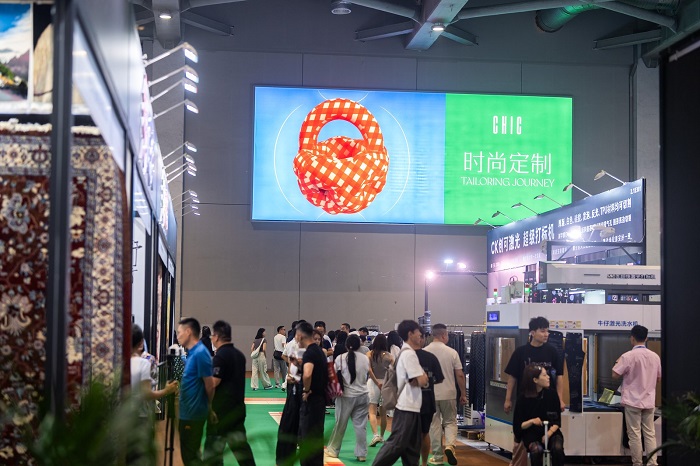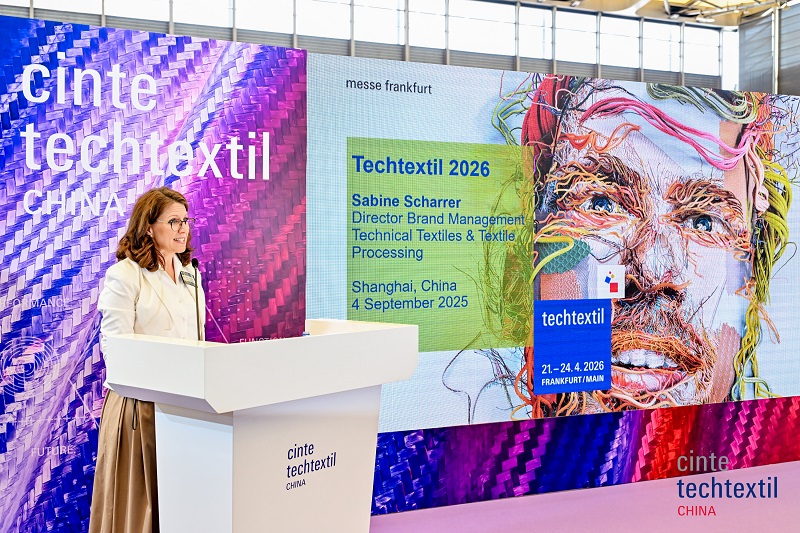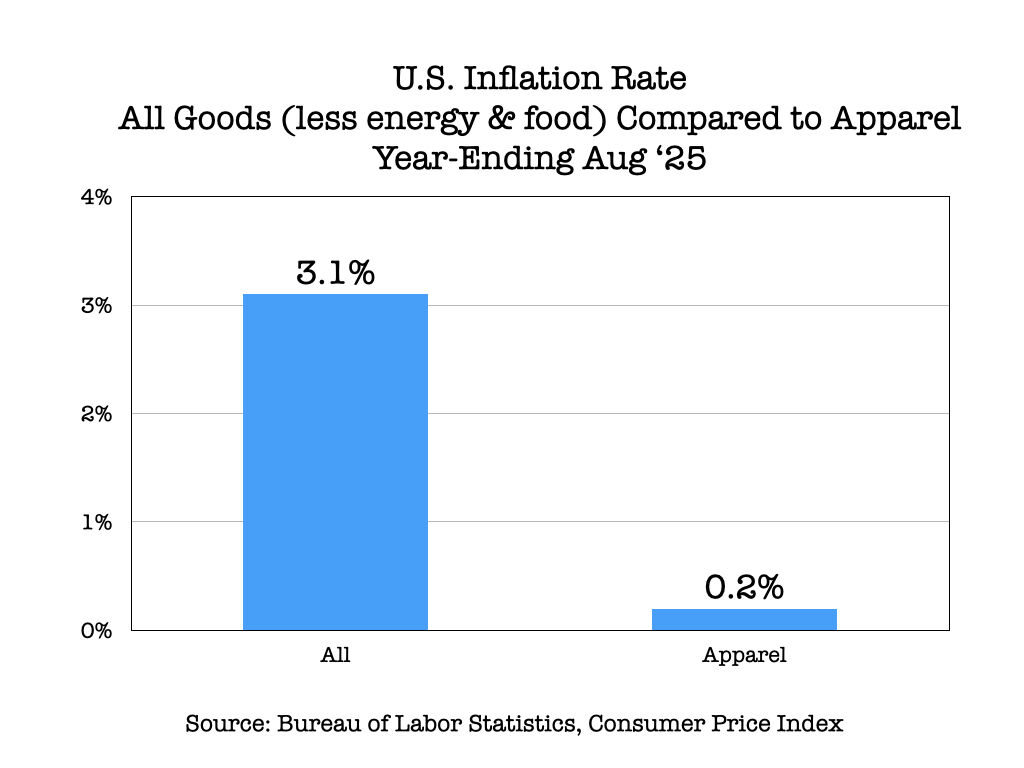FW
According to the The Indonesian Textile Association (API) of West Java, The US dollar exchange rate has not affected the textile market due to rising export values even though the raw materials are still imported.
The rate increase is considered within reasonable limits, where the dollar is estimated to be looking for new equilibrium figures. The last dollar exchange rate was recorded at Rp14,000 / USD.
Majority of large textile industries in West Java export products with only a few raw materials such as cotton and spinner machinery being imported.
"For the textile industry sold in the country, the market is also quite good, especially Lebaran and the political year so it will not be affected significantly, Majalaya sarong craftsmen for example, now the demand is quite good. Support with the previous stock of sarong to accumulate," Jabar API Secretary General, Kevin Hartanto said.
He hopes the rupiah exchange rate against the dollar does not go down. "The important thing is not to volatile, if it goes down, that will be a problem, because now the margin industry is getting thinner, so we are difficult to determine the price. It will be inflation, "he added
In the last decade, countries like Bangladesh, Vietnam and Sri Lanka have overtaken India in the readymade garment market.
Bangladesh has a market four times bigger. Sri Lanka has been accorded GSP Plus by the European Union so that the island nation can export apparel to EU countries without payment of import duty. Ethiopia which is an emerging textile manufacturing nation has free trade access with the United States. At the same time, Indian apparel exports to the US are subject to a levy of 11.40 per cent.
While Indian exporters are levied import duty on yarn used to produce garments that are to be exported, countries including Bangladesh, Sri Lanka and Ethiopia levy no such duty.
Since July 2017, the rebate on state levies has been slashed from 3.5 per cent to 1.7 per cent. A percentage of the service tax component of drawback has been removed. Besides, duty drawback has been reduced from 7.5 per cent to two to two and a half per cent.
The Tirupur cluster claims rebate on state levies dues of Rs 500 crores.
Free trade agreements with the EU and a comprehensive economic partnership agreement with Canada and Australia in the apparel sector could go a long way in boosting Indian garment exports.
At a conference co-hosted by Vietnam Chamber of Commerce and Industry (VCCI) and the Ministry of Industry and Trade on May 22, 2018 in Hanoi, fundamental commitments of the Comprehensive and Progressive Agreement for Trans-Pacific Partnership (CPTPP) and recommendations for businesses took centre stage.
According to Quoc Khanh, Deputy Minister of Industry and Trade Tran, agreement will not only boost international trade and investment but also intra-bloc trade activities.
However, to utilise its complete benefits, Vietnamese businesses first enlighten themselves to avoid related risks.
According to Hoang Thai, Director, Ministry of Industry and Trade’s Multilateral Trade Policy Department, “the trade pact will help promote the Government’s reform progress as well as the image of Vietnam as a supporter of free trade in line with international law. It will provide a good opportunity for Vietnam to open more its market, intensify investment, step up international cooperation, general more jobs, and reduce poverty.”
South Korean factories are operating in an export processing zone in Bangladesh. The zone has 25 factories. Nine new factories will go into operation this year. The plan is to reach a total of 100. Exports earnings of the Korean Export Processing Zone (KEPZ) are gaining momentum. Companies like Samsung and LG are interested in investing in the EPZ.
Out of the 25 factories, one is a shoe factory and the rest are for textiles. The zone offers some 20,000 direct jobs, which is expected to double by 2021. The target is to create 1,00,000 jobs. Indirect jobs will total 2,00,000.
Construction is underway for IT industries, a product research, design and development zone, and a female workers' dormitory. Other facilities in the making include a university building for 3,000 students, schools, colleges, hospitals and vocational institutions, all expected to be complete by 2021.
In the 2,492-acre zone 48 per cent of the area has been allotted for setting up factories and associated facilities while the rest are for gardens and lakes. This is Bangladesh’s largest private export processing zone. In 2009, it saw factories begin operations. Some of these are Karnaphuli Shoes, Karnaphuli Garments, Karnaphuli Polyester Products, Evertop Product Development Company, Gaya Product Development Company and Dei-Go Product Development Company.
Planet Textiles was held in Canada, May 22. Textile technology that can recycle discarded clothing to produce both petroleum and plant-based monomers, unique technology to improve the biodegradability of polyester, new textile dyes from biosynthetic and wood-based feedstocks and new ways to produce viscose fibers from food and beverage waste streams were just some of the innovations presented.
The event attracted delegates from Australia, China, Taiwan, India, Bangladesh as well as a heavy European contingent. Textile microfiber pollution featured strongly on the conference program delegates were taken through the development of a new standardised test method for textile microfiber release during washing. Intrinsic Textiles revealed a new process for breaking down polyester microfibers not only in wastewater treatment sludge, but also for breaking down these synthetic microfibers in seawater and other environments.
There were three packed breakout sessions on textile chemistry in water use, transparency in the manmade fiber sector in relation to deforestation, and how to leverage financing mechanisms to scale sustainable innovation in the apparel sector.
The goal for Planet Textiles is to help the textile industry find more harmonized sustainable solutions, as now more than ever, the industry—and the consumer—are calling for transparency and products to be made more sustainably.
European Union exports of circular knitting machines increased by 3.1 per cent in 2017 from 2016. Among EU countries, two continue to stand out in terms of knitting machine exports: Germany and Italy. While Italy is the leader in sock knitting machines, Germany leads in terms of circular knitting machines for apparel fabrics and other applications.
The European Union produces many of the world's finest and most advanced circular and hosiery knitting machines. Renowned international brands like Mayer & Cie. and Terrot continue to dominate large diameter machine sales, with small diameter specialist machine builders such as Harry Lucas also contributing.
Italy is the second largest exporter after Germany. In 2017, Italy had a 22.3 per cent share of EU circular knitting machine exports. Italian brands such as Santoni and Pilotelli (now owned by Terrot) continue to export globally. Turkey’s share was 18.3 per cent in 2017.
Italy is the largest exporter of sock knitting machines. Italy’s share of EU sock knitting machine exports in 2017 was 87.2 per cent, leading the world with internationally celebrated brands such as Lonati, Sangiacomo, Rumi, Busi Giovanni and Cesare Colosio. Turkey received 29 per cent of EU sock knitting machines exports in 2017 while China received 18.6 per cent.
Redress will organise ‘Design Award 2018’ the world’s largest sustainable fashion design competition in September 2018 in Hongkong. The competition will enable finalist to present their collections created entirely from waste textiles to an international audience The company recently announced 11 finalists representing 11 different regions including Hong Kong, India and the UK.
The finalists sourced inspiration from a range of complex and topical issues such as climate change, war, gender identity, over-consumption and how the internet has altered our relationships with one another. These 11 emerging designers represent a new generation of socially and environmentally conscious individuals who are determined to make a difference through their actions. The designers embody a growing movement to bring textile waste back into fashion and take the circular economy mainstream.
All finalists will now create their five-piece collections from their homes in Hong Kong, Taiwan, Israel, Philippines, Japan, France, UK, Spain, Denmark and - a first for the competition - India and Australia. Their collections will soon be handed over to the competition’s logistics partner, UPS, who will expertly deliver them to Hong Kong in preparation for the Grand Final fashion show at HKTDC’s Centrestage fashion week onSeptember 6, where the winners will be announced in front of a 1000-strong audience and via global live stream.
Yarn Fabric & Accessories (YFA) show will be held in Ludhiana from August 30 to September 1. This is Ludhiana’s first ever exhibition of fibers, yarns, fabrics and accessories. It aims at redefining the way fiber, yarn, fabric and apparel accessories are sourced. It will bring renowned suppliers from these four segments closer to buyers and also offer buyers a one-stop place to source all their requirements.
The show is a gateway for companies to enter the attractive and lucrative north Indian market and grab a slice of the ever-growing market for textiles and apparels. It is taking place in a northern region of India, which is one of the biggest Indian hubs for manufacturing textiles and apparel.
For exhibitors to get full advantage during the course of the three-day show, the organizers have also planned several B2B meetings between exhibitors and visitors and have also invited business delegations from various parts of the country. Ludhiana and its surrounding area is the headquarters for several renowned Indian and global apparel brands and also home to thousands of knitting, spinning and weaving units as well as garment manufacturing units.
Exhibitors will have access to the most exclusive buyers ever seen in any other exhibition of this category.
Lenzing will expand capacities for Tencel Luxe filament yarn. Basic engineering for construction of the new facility has already been initiated. Luxe, Lenzing is currently positioning itself in the premium luxury market and is embedding the issue of sustainability there in combination with superior aesthetics, The fine filament yarn is comparable to natural silk due to its airy feeling on the skin and the matte finish. It is perfectly suited for very fine fabrics made exclusively from this yarn and as a blending partner with silk, cashmere and wool.
This yarn is made of the renewable raw material wood and is opening up new markets for the company in the eco-couture segment. The decision to construct a new line will serve as the basis for generating a three-fold increase in capacity compared to the previous volume. The additional capacity will be available to customers at the end of next year.
As Lenzing's flagship brand in the textile sector, Tencel will grow beyond fiber types and functional characteristics. It will become a true consumer-focused brand with a promise of something more functional and emotional.
Lenzing’s wood procurement policy is based on sustainability principles. Lenzing proactively supports the improvement of the condition and biodiversity of global forests. Lenzing fibers derived from sustainable forest management make a global contribution to climate protection.
The weakening of the rupiah against the US dollar (USD) is affecting business activities in Indonesia especially the Textile and Textile Products (TPT) industry.
According to the Secretary General of Indonesian Filament and Fiber Films Distribution Association (APSyFI) Redma, “it is getting worse after the Minister of Trade Regulation (Permendag) 64 years 2017 which caused the imports to increase by 19.6 percent compared to the exports performance in the first quarter of 2018. "The trade balance is still a surplus of USD1, 29 billion, but down compared with the same period the previous year," he further said.
Furthermore, after controlling the import of sales, the textile industry grew by 30 percent in the fourth quarter of 2017 and the first quarter of 2018. However, since Permendag 64/2017 took effect in the second quarter of 2018, demand from the domestic market was replaced by imported products Bonded Logistics Center (PLB).
"If Small Medium Enterprises (IKM) need raw materials, today we will see IKM products that are flooding the market, not imported products," he stated demanding Permendag 64/2017 to be revoked and returned to Permendag 85 / 2016 where the import of raw materials is regulated based on industry needs.












